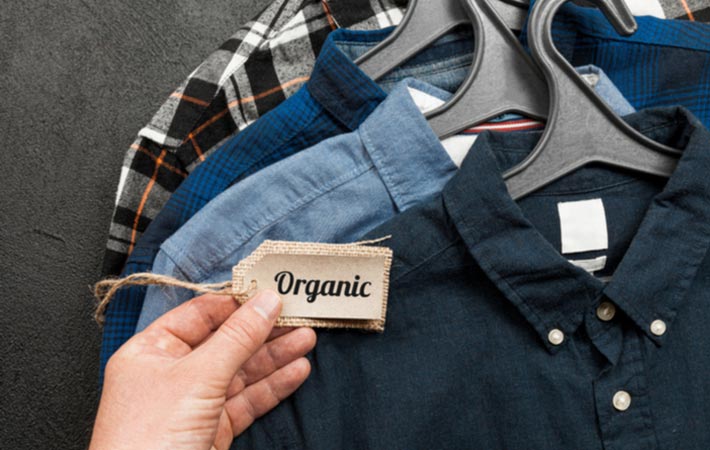Interviews
EEB responds to EU strategy for sustainable textiles
10 Feb '21
2 min read

Pic: Shutterstock
The European Environmental Bureau (EEB) recently called on the European Commission to ensure that the forthcoming Textile Strategy recognises that the pressure and impact linked to clothing, footwear and household textiles in Europe is the result of a business model based on the sale of ever-more new products made from finite virgin resources.
The virgin resources have a short useful lifespan and are seldom reused or recycled. This is particularly the case when it comes to clothing and fashion products, EEB said on its website responding to the European Union’s (EU) strategy for sustainable textiles roadmap.
Brussels-based EEB is the largest network of environmental citizens’ organisations in Europe with over 160 member organisations in more than 35 countries.
The Textile Strategy should recognise that economic growth in the global textile and clothing industry is maintained through the extraction and exploitation of resources, from raw materials to labour, EEB said.
To protect the life-sustaining earth functions people rely on and to remain within a safe operating space for humanity, the textile industry’s sheer growth in material use must be addressed.
And with the EU being a significant market of major retailers and brands as well as where they are domiciled or based, policymakers have a responsibility to set the textile sector on a path to a fair and sustainable transition, EEB said.
To date, voluntary self-regulation has not been effective in setting corporate accountability. The Textile Strategy is an opportunity to set an overarching framework that ties together the various new and existing legal instruments affecting a textile product, from production to end-of-life, it said.
These instruments should be based on the principles of absolute resource-use reduction, achieving a toxic-free environment, absolute reduction in climate and environmental impact, and the respect of fundamental human rights, it said.
There can also be no market access for textile products where both human rights and environmental due diligence has not been carried out, and the transition to a more resource-sufficient and toxic-free industry must be a just one for its millions of workers, it added.
EEB will build further on these ideas further as it plays an active role in the continued stakeholder engagement around the Textile Strategy initiative, starting with the forthcoming public consultation.
The virgin resources have a short useful lifespan and are seldom reused or recycled. This is particularly the case when it comes to clothing and fashion products, EEB said on its website responding to the European Union’s (EU) strategy for sustainable textiles roadmap.
Brussels-based EEB is the largest network of environmental citizens’ organisations in Europe with over 160 member organisations in more than 35 countries.
The Textile Strategy should recognise that economic growth in the global textile and clothing industry is maintained through the extraction and exploitation of resources, from raw materials to labour, EEB said.
To protect the life-sustaining earth functions people rely on and to remain within a safe operating space for humanity, the textile industry’s sheer growth in material use must be addressed.
And with the EU being a significant market of major retailers and brands as well as where they are domiciled or based, policymakers have a responsibility to set the textile sector on a path to a fair and sustainable transition, EEB said.
To date, voluntary self-regulation has not been effective in setting corporate accountability. The Textile Strategy is an opportunity to set an overarching framework that ties together the various new and existing legal instruments affecting a textile product, from production to end-of-life, it said.
These instruments should be based on the principles of absolute resource-use reduction, achieving a toxic-free environment, absolute reduction in climate and environmental impact, and the respect of fundamental human rights, it said.
There can also be no market access for textile products where both human rights and environmental due diligence has not been carried out, and the transition to a more resource-sufficient and toxic-free industry must be a just one for its millions of workers, it added.
EEB will build further on these ideas further as it plays an active role in the continued stakeholder engagement around the Textile Strategy initiative, starting with the forthcoming public consultation.
Fibre2Fashion News Desk (DS)
Popular News
Leave your Comments
Editor’s Pick
Folker Stachetzki
Brother Internationale Industriemaschinen GmbH
Andreas Rass
ZIMMER AUSTRIA | Digital Printing Systems
































-Ltd..jpg?tr=w-120,h-60,c-at_max,cm-pad_resize,bg-ffffff)





.jpg?tr=w-120,h-60,c-at_max,cm-pad_resize,bg-ffffff)
.jpg?tr=w-120,h-60,c-at_max,cm-pad_resize,bg-ffffff)






